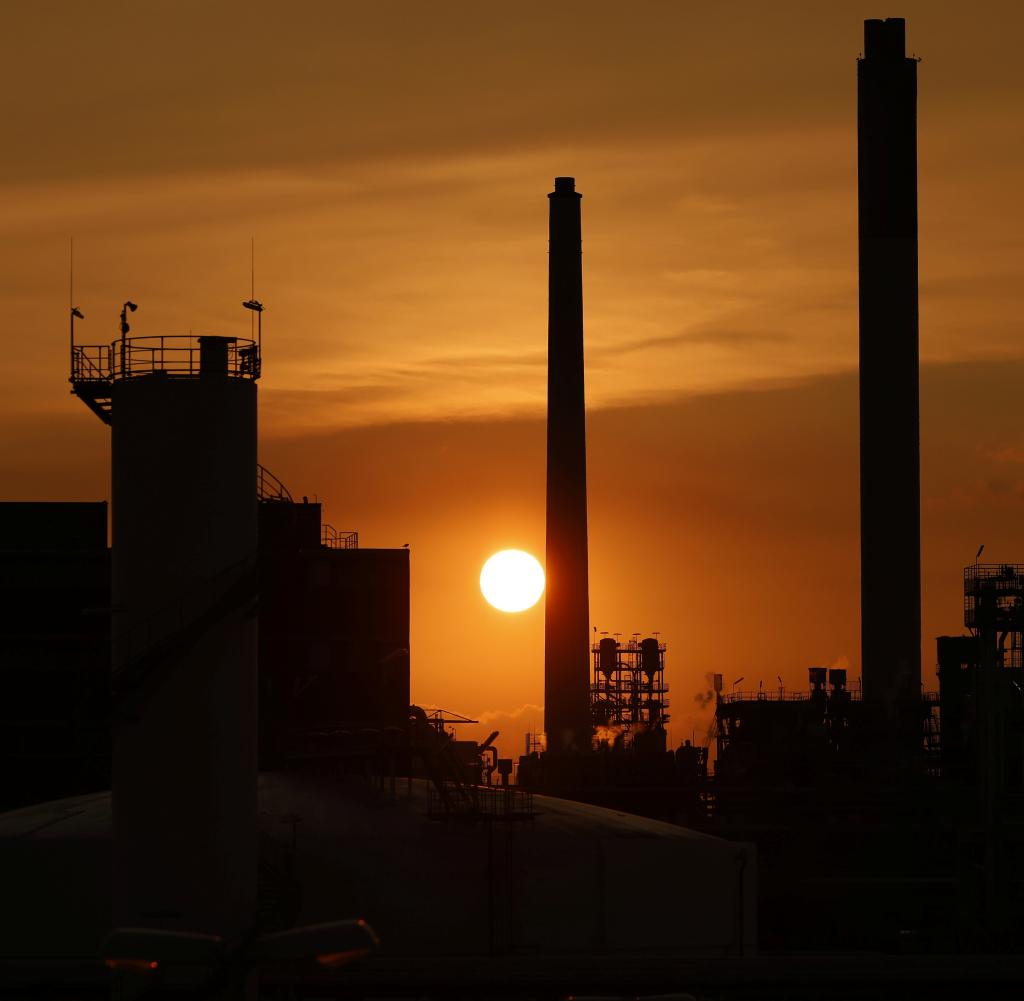No applause, no heckling, no spontaneous speakers from the audience – the setting that the chemical company Evonik had chosen for this year’s annual general meeting was as sterile as possible. For the second time in a row, Evonik held a purely virtual annual general meeting, also to save costs, as Evonik CEO Christian Kullmann emphasized with a serious look in front of a white wall.
The group has had a difficult year, and in 2023 Evonik had to issue a profit warning for the first time in its history. Nevertheless, the group has still got off lightly and will grow more strongly than the economy as a whole again this year – thanks in part to consistent cost-cutting measures. A glimmer of hope, at least.
Evonik’s Annual General Meeting could mark an early signal of a trend reversal in the chemical industry. Germany’s third-largest export industry has reported one piece of bad news after another in recent months: Lanxess surprised everyone with a significant profit warning in the second quarter of 2023, as did Sartorius and the fertilizer producer K S.
Covestro canceled its dividend for 2023, for the second time in a row. And the world’s largest chemical company, BASF, was also unable to escape the negative trend and responded with an extensive savings program. Across the industry, several chemical companies also announced that they wanted to invest more abroad instead of in Germany due to the difficult conditions.
But this negative spiral may now be beginning to be broken. The Chemical Industry Association (VCI) sees the chemical industry as being on the up again. According to the association, the industry’s foreign sales rose by 3.6 percent in the first quarter of the year compared to the previous quarter. Business with customers outside Europe in particular has increased.
“Our industry is finally getting a tailwind again. Foreign business is very important. Over 60 percent of sales are generated with customers abroad,” said VCI chief economist Henrik Meincke. But despite the economic recovery in many foreign markets and the increasing demand for chemical products “Made in Germany,” the industry is not out of the woods yet.
The VCI states that business is continuing to be “sluggish” in the domestic European market. Foreign sales in many regions are still significantly below their previous year’s figures. In addition, sales opportunities are being dampened by cost problems, particularly in Germany. It is therefore not to be expected that the chemical companies will reduce the cost-cutting programs they have introduced because of the crisis.
At the Annual General Meeting in Essen, Evonik CEO Kullmann spoke of a “strong start” to the fiscal year, after the group was able to post an adjusted result significantly above the previous year’s figure for the first time after seven declining quarters. “For the second quarter, we see similar operating trends as in the first quarter, even though there is still no broad-based macroeconomic recovery in sight,” said Kullmann.
The annual forecast of 1.7 to 2 billion euros for earnings before taxes and depreciation is also already “well-founded”. Despite the increased confidence, however, it is not yet enough to adjust the forecast upwards, as Kullmann stressed: “We prefer to act cautiously and conservatively and to stay on the better, safer side in program planning.”
A look at sales alone shows how much Evonik’s growth has recently been boosted by the Asia region in particular. According to the company, sales in China rose by 20 percent in the first quarter compared to the same period last year – compared to a five percent decline in total sales.
Other chemical companies are also feeling the upswing. The Cologne-based specialty chemicals company Lanxess announced that sales for market regions outside Germany increased by eight percent in the first quarter of 2024 compared to the previous three-month period. The increase was particularly striking in the economic area of Europe (excluding Germany), the Middle East and Africa, where sales increased by around 21 percent.
In the Asia-Pacific economic region, sales increased by around two percent during this period. At the same time, Lanxess stressed that these figures only represent a “slight upward trend” and that “the figures are still significantly below the average of recent years.”
The chemical company BASF from Ludwigshafen also recorded “an increase in exports from Germany to all regions” in the first quarter of 2024, compared to the fourth quarter of the previous year. “This increase in sales was mainly due to higher sales volumes,” BASF announced.
At the same time, the company remains cautious when it comes to making statements about a possible recovery in the industry. “Whether this increase in volume was a temporary increase due to stockpiling or represents a structural improvement in demand will be shown by the further course of events in 2024,” BASF says. For example, export sales from Germany – adjusted for the agricultural solutions segment – were “still declining in all regions” in the first quarter of the year compared to the first quarter of 2023.
The chemical companies want to stick to their savings programs despite the first signs of recovery in the industry. BASF announced that the announced savings programs would continue “unchanged”. The company had already achieved savings of 600 million euros by the end of last year. The headquarters in Ludwigshafen is particularly affected by the savings programs. In total, the company wants to save around 2.1 billion euros per year from the end of 2026.
Lanxess also states that the current figures have “no influence whatsoever” on the current savings program. For Evonik, a departure from the savings program announced a few months ago is also not an option. “Our focus remains on liquidity and cost savings. The current savings program is continuing unchanged,” the company said in response to a request from WELT. In March, the company announced that it wanted to cut 2,000 jobs worldwide, which would involve the elimination of four of the current ten hierarchy levels.




